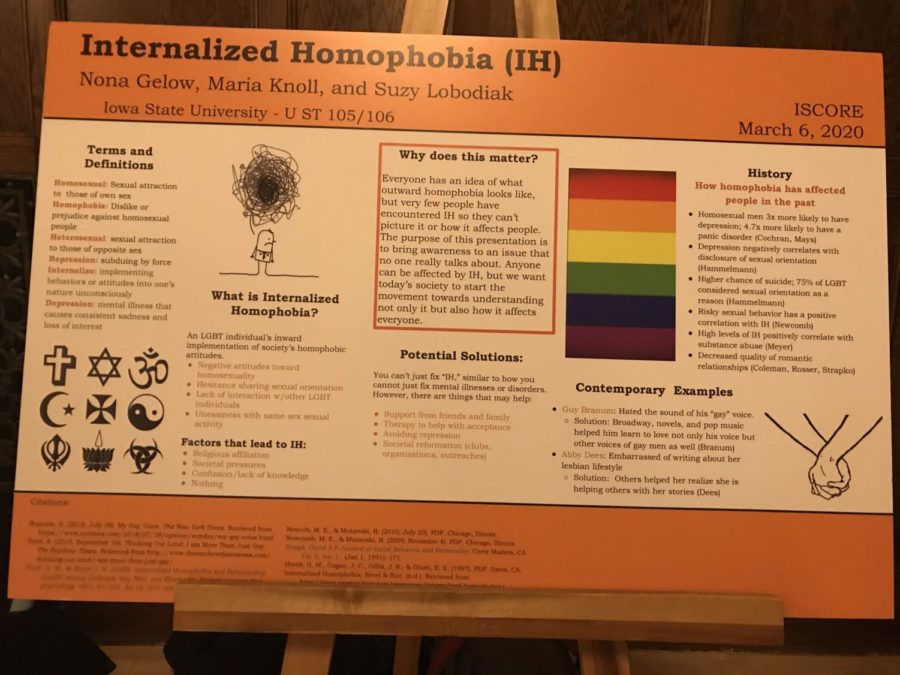George Washington Carver First-Year Scholars display projects about the impact of “Isms.”
March 7, 2020
Iowa State Conference on Race and Ethnicity (ISCORE) is an opportunity for students to not only learn, but to educate others about issues going on in the world. In one breakout session, the George Washington Carver First-Year Scholars taught other students, faculty and community members about the different “-isms” in the world.
A large group of students known as the George Washington Carver Scholars set up their various poster boards around the Great Hall in the Memorial Union, in order to educate their peers and other staff members about sexism, racism, homophobia and xenophobia, and where these “-isms” appear.
Students covered various topics like ableism, internalized homophobia, colorism, sexism in media, xenophobia against Latinx, heteronormativity in children’s movies, racism in the workplace, and many other topics. These topics were then translated into the interpretations that these George Washington Carver students had, and how they viewed these “-isms” at Iowa State.
Each group of George Washington Carver scholars, about three students per group, created poster boards that had the aspects of their topic that they had researched displayed on them.
Attendees of this session could walk around in a circle in the Great Hall to look at all the poster boards, in which the scholars would greet an attendee and speak about their project. Each student would have an opportunity to talk about the specific parts of the project in which they researched.
The scholars used definitions to define key terms that were used for their project, had some sort of introduction to what their project was about, the history behind their certain topic or literature components, the problem overall that is displayed in timelines or statistics, involved some sort of visual component to not only express their topic better, but also to keep attendees engaged, as well as had resolutions that the students made themselves to solve the social issues they talked about.
After the scholars presented their information to attendees, attendees had the opportunity to ask any question about the project, in which the student scholars would answer questions to the best of their ability. After attendees were done with a group, they could move on to the next to learn about a completely different topic from the last.







